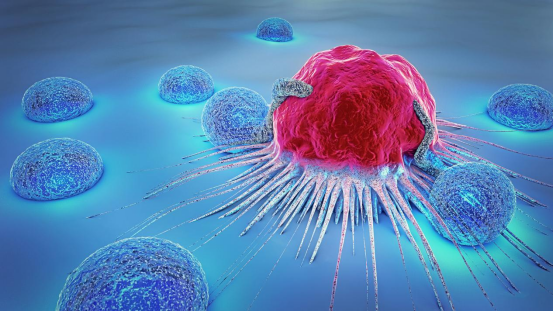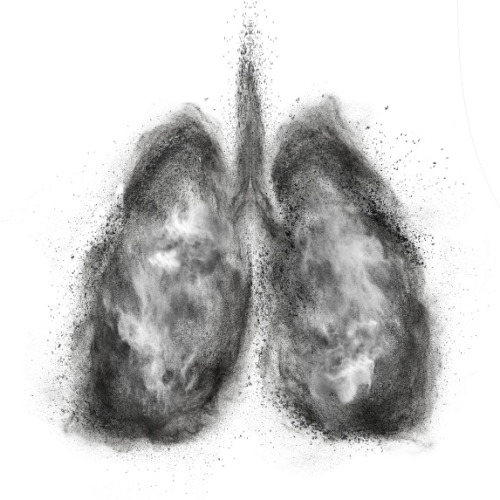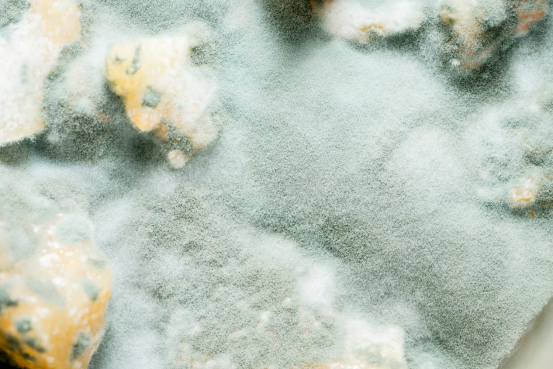科学文献
"Why me?" This is probably the deepest question in the heart of every person who learns that he or she has cancer. How does cancer, a disease that seems far away but is always lurking around us, quietly invade our lives?

First of all, we must understand that cancer is not a disease that develops overnight. Its formation is often a long process involving the combined effects of multiple factors. Genetic factors are one of them. Some cancers do have a family clustering phenomenon, but this does not mean that cancer is necessarily a genetic disease. In more cases, genetic factors only increase the risk of cancer, but are not the decisive factor.
1. Cancer “sucked out”
The seemingly shocking statement that cancer is "sucked out" is actually a warning about a bad lifestyle habit.
1. Smoking is one of the main risk factors for many cancers.
The nicotine, tar and other harmful substances in tobacco, when burned, release smoke that directly enters the lungs and spreads throughout the body. Long-term smoking not only increases the risk of lung cancer, but may also cause laryngeal cancer, esophageal cancer, pancreatic cancer and other cancers. In addition, passive smoking can also threaten the health of people around you, especially children and pregnant women.
2. In addition to smoking, the impact of kitchen fumes on people, from a young age, is that it has a strong irritation to the nose, eyes, and throat mucosa, which can cause rhinitis, pharyngitis, tracheitis and other respiratory diseases. Long-term inhalation of fumes can also lead to lung cancer.
3. Of course, in addition to tobacco and alcohol, cancers caused by "inhalation" may also be related to other bad living habits. For example, long-term exposure to air pollution, inhalation of a large number of harmful particles and gases - decoration pollution (formaldehyde, benzene, ammonia and esters, etc.), industrial waste gas and automobile exhaust and their derived compounds lead to smog weather, which may also increase the risk of respiratory diseases such as lung cancer.

2. Cancer caused by eating
1. Eating too much meat
After in-depth research by Professor Li Menghong's research team at the Sixth Affiliated Hospital of Sun Yat-sen University, it was found that the key gene ILF3 in the process of tumor carcinogenesis has a significant function. This gene can prompt tumor cells to absorb a large amount of surrounding nutrients, thereby promoting their malignant proliferation. Studies have pointed out that excessive intake of nutrients, especially foods rich in serine and methionine, will significantly increase the risk of cancer. In the current social context, people's dietary structure is increasingly tending to be high in fat and high in protein, and this trend further increases the risk of cancer. Therefore, moderately controlling meat intake and optimizing dietary structure are of great significance for preventing malignant diseases such as colorectal cancer.
2. Eating too much salt
Authoritative research shows that there is a significant correlation between salt intake and the risk of gastric cancer. Sun Hao, director of the Gastrointestinal Tumor Center of Chongqing Cancer Hospital, pointed out in 2017 that the World Health Organization has clearly stipulated that the upper limit of salt intake per person per day is 6 grams. Once this standard is exceeded, the high osmotic fluid in the salt will cause damage to the gastric mucosa. If this continues for a long time, it is very likely to increase the risk of gastric cancer.
3. Eating food that is too hot
Xiang Jiaqing, chief physician of the Department of Thoracic Surgery at the Affiliated Cancer Hospital of Fudan University, emphasized that in Chinese food culture, there is a distinctive type of food, namely hot pot. The cooking characteristic of hot pot is its high temperature, which often presents a scalding temperature. If an individual maintains such a dietary habit for a long time and frequently consumes high-temperature food, it is easy to cause damage to the esophageal mucosa. This kind of damage is in the process of repeated repair and damage, and the long-term cycle is very likely to induce the occurrence of cancer.
4. Drinking alcohol causes cancer
After alcohol enters the human body, it is first metabolized by the liver. In this process, alcohol produces a series of harmful substances, such as acetaldehyde, which have a direct toxic effect on liver cells. Long-term and heavy drinking can easily lead to fatty liver and cirrhosis, thereby increasing the risk of liver cancer. In addition, alcohol can also affect the liver's detoxification function of other carcinogens, reducing the body's resistance to these substances.
Alcohol also affects the body's immune system. Long-term drinking can weaken the immune system and reduce the body's ability to identify and eliminate cancer cells. In this way, cancer cells may escape the supervision of the immune system and then grow wantonly in the human body.

3. Cancer Saved
1. Don’t be reluctant to throw away moldy food
Gao Qilong, director of the First Ward of the Department of Integrated Traditional Chinese and Western Medicine Oncology at Henan Cancer Hospital, solemnly pointed out in 2018 that aflatoxin, as a highly toxic substance, was clearly classified as a Class 1 carcinogen by the World Health Organization as early as 1993. Its toxicity is 68 times that of arsenic, 10 times that of potassium cyanide, and 70 times that of dimethylnitrosamine, and its destructive power to liver tissue is particularly significant. Long-term intake of aflatoxin will significantly increase an individual's risk of liver cancer.
Therefore, it is very important to prevent aflatoxin. People should strictly avoid eating moldy food. If they taste bitter or rancid nuts during eating, they must spit them out and rinse their mouths immediately. In particular, peanuts, sweet potatoes, sugar cane and other foods, as well as oily foods such as peanut oil, should not be stored for a long time. Once mold is found, they should be discarded immediately to avoid potential threats to health.

2. Don’t want to throw away leftover food
The older generation generally experienced a period of scarcity, so they cherish food very much and often store leftover food in the refrigerator and eat it for several days in a row. However, according to Song Yi, a nutritionist at the Clinical Nutrition Department of Sichuan Provincial People's Hospital, vegetables often contain nitrates, which will gradually be converted into nitrites that are harmful to the human body under the action of bacteria. And as the storage time increases, the nitrite content will continue to increase.
Although eating leftovers occasionally will not cause significant effects on the body, long-term intake of leftovers containing large amounts of nitrites may have adverse effects on human health. Among them, the most serious harm is that nitrites may increase the risk of cancer. Therefore, it is recommended that the public pay attention to a reasonable combination in their diet and try to avoid eating leftovers for a long time to ensure good health.
4. Cancer caused by laziness
1. Too lazy to exercise
Some people seem to spend long hours sitting and working, resting and sleeping in their daily lives. When traveling, they try to take a vehicle instead of walking, and avoid climbing stairs when they can use an elevator. They are almost unwilling to invest any energy in physical exercise, and long-term lack of physical activity will indeed increase the risk of cancer.
According to Chai Li from Shaanxi Cancer Hospital in 2019, the World Health Organization pointed out as early as 2013 that lack of physical exercise has become the fourth largest risk factor for death in the world. Long-term lack of physical activity will lead to a decrease in the number of immune cells in the body, thereby significantly increasing the possibility of cancer. Therefore, maintaining regular and continuous physical activity has a positive significance for preventing cancer in certain parts of the body.
2. Too lazy to have a physical examination
Neglecting regular physical examinations, neglecting to seek timely medical treatment, trying to avoid tedious matters, but unfortunately encountering serious illness is a self-defeating move.
Many cancer patients choose to seek medical treatment only when the symptoms are obvious in the late stage. However, when cancer is discovered at this time, the best time for treatment has often been missed. Even if the doctor has superb medical skills, it is difficult to save the situation.

In addition to the above aspects, staying up late for a long time, long-term overwork, irregular diet, etc. will
An important cause of cancer. In modern life, we are faced with various environmental pollutions, such as air pollution, water pollution, food pollution, etc. These pollutants may contain carcinogens, and long-term exposure will increase the risk of cancer. In addition, bad living habits are also accomplices of cancer. Smoking, alcoholism, staying up late, irregular diet, etc. will cause damage to the body and lay the groundwork for the occurrence of cancer.
Of course, the occurrence of cancer is not completely unpreventable. By changing bad living habits, reducing exposure to environmental pollution, and having regular physical examinations, we can effectively reduce the risk of cancer. At the same time, for patients who have already suffered from cancer, active treatment and an optimistic attitude are also the key to defeating the disease.
The occurrence of cancer is a complex process involving the combined effects of multiple factors. We cannot completely avoid the occurrence of cancer, but we can reduce the risk by changing our lifestyle and taking proactive measures to prevent it. In the face of cancer, we should not feel fear and helplessness, but should face it positively, seek effective treatments, and regain our health and happiness.